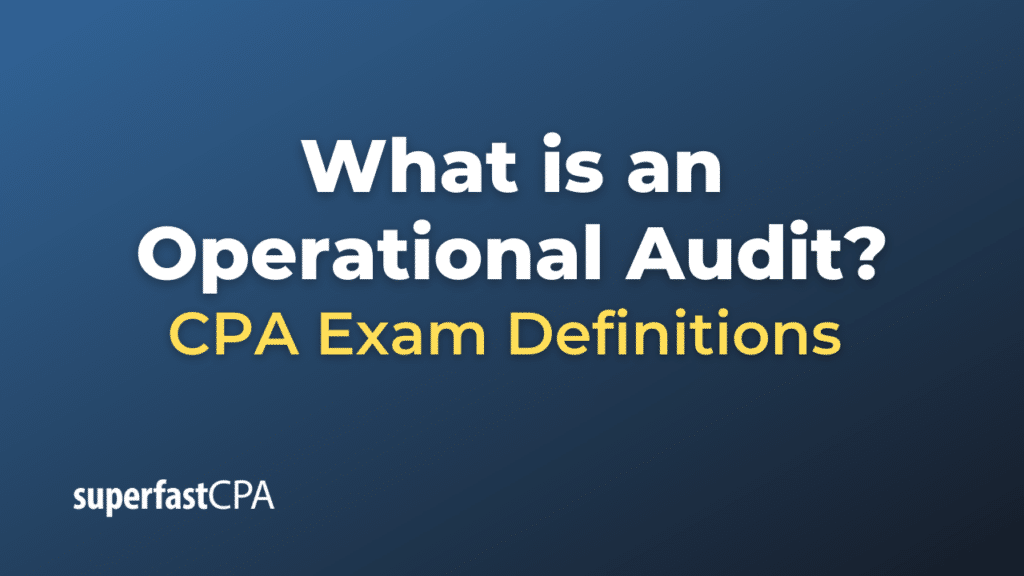Operational Audit
An operational audit is a detailed analysis conducted to evaluate the effectiveness, efficiency, and economy of an organization’s operations. It is a type of internal audit that focuses on improving operations and enhancing value to the organization.
While financial audits primarily examine financial records and transactions to express an opinion on the fairness of the financial statements, operational audits examine all aspects of an organization including its procedures, controls, structure, and outcomes to ensure that resources are being used in the most effective and efficient manner.
The objectives of operational audits can include:
- Evaluating the efficiency and effectiveness of operations.
- Identifying operational weaknesses and areas for improvement.
- Checking compliance with laws and regulations.
- Assessing risk management practices.
- Reviewing the reliability and integrity of operational and management information.
- Examining the systems established to ensure compliance with policies, plans, procedures, laws, and regulations which could have a significant impact on operations.
Operational audits often result in recommendations for improvements in processes and controls, which can lead to cost savings, improved operational efficiency, reduced risk, and other operational enhancements.
Operational audits are typically performed by internal auditors, consultants, or other professionals with expertise in operations management and operational auditing. These auditors work closely with management throughout the audit to understand the operations being audited and to ensure that the audit’s findings and recommendations are practical and useful.
Example of an Operational Audit
Let’s imagine a manufacturing company that decides to conduct an operational audit to improve its efficiency and productivity.
The operational auditors might evaluate the following areas:
- Production Process: They would review the entire production process to identify any bottlenecks or inefficiencies. For instance, they might find that some stages of the process are overstaffed, while others are understaffed, causing delays.
- Inventory Management: The auditors might discover that the company has excessive amounts of raw materials inventory, which is tying up capital and increasing storage costs. Alternatively, they might find that poor forecasting is leading to regular shortages of certain materials, causing production delays.
- Quality Control: The audit may reveal that the company’s quality control processes are insufficient, leading to a high rate of defective products that need to be reworked or discarded.
- Compliance: The auditors would also ensure that the company is complying with all relevant health and safety regulations and other legal requirements.
- Risk Management: The audit might uncover areas where the company is at risk, such as a lack of backup suppliers for critical materials.
At the end of the audit, the auditors would present their findings to the company’s management, along with recommendations for improvements. For example, they might suggest changes to the production process to eliminate bottlenecks, improvements to the inventory management system to reduce costs, and enhancements to the quality control process to decrease the rate of defects.
The management of the company would then decide which recommendations to implement, based on factors such as the potential benefits, the cost of implementation, and the company’s strategic priorities.













